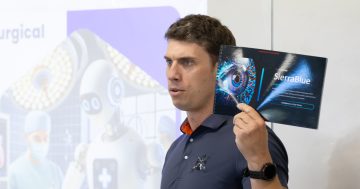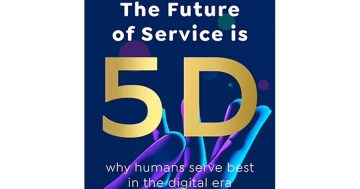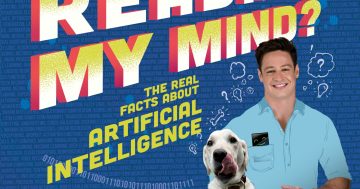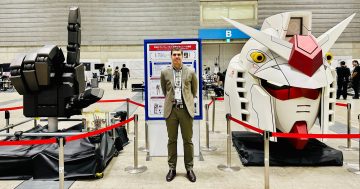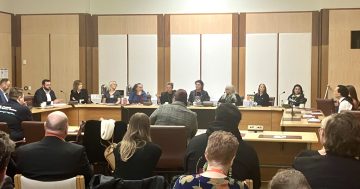Emma Smith and Ross Smith* say the pandemic has hastened an entrance into the future world of work.

Image: metamorworks
We’ve heard a lot about the Fourth Industrial Revolution and how the nature of work will change as machine intelligence starts to pass human intelligence.
Advancements in robotics, computer vision and speech, and machine learning will accelerate the application of automation to human tasks.
It looks like the novel coronavirus has hastened the entrance into this future world of work.
There has been a longstanding belief that artificial intelligence (AI) and automation would displace an increasing percentage of the workforce in the future.
Some studies suggest that perhaps 30 per cent of the workforce — potentially 800 million workers — will have their jobs disrupted by AI and automation in the next 10 years.
There have been numerous studies that show “jobless recoveries” as organisations use the downturn to retool and deploy new technology, which is generally faster, more reliable, and cheaper in the long run.
We are here to suggest there is a new AI among us now.
“AI” is not only an acronym for “artificial intelligence”, but “AI” now could be an acronym for “An Infection”.
It’s not news to say that coronavirus is having a huge impact on the world of work.
As we bring these worlds together, it’s worth a step back to understand that perhaps this virus marks the beginning of the Fourth Industrial Revolution, the age of AI, and that we are at the beginning of a new normal.
This is illustrated by the millions of workers now filing for unemployment.
Many of these lost jobs may be gone forever.
Algorithms, robots, and automation — none of which ever get sick — will be developed and deployed while human workers are quarantined at home.
According to US Department of Labor data, “after the seven recessions from 1950 through the 1980s, it took 20 months, on average, before total employment reached its pre-recession peak”.
“But in the three recessions since 1991, it has taken an average of 51 months for the labour market to heal, or 2.5 times as long.”
While this is a dystopian view at a societal level, we wanted to put forth a more optimistic view and look back to history.
Some of our great masterpieces have come from quarantine periods: like Shakespeare’s King Lear, written during quarantine from the London plague or Salvador Rosa’s Human Frailty, painted in the midst of the Black Death.
When we devote time to rest, our brains have time to reflect on experiences, make connections and become more creative.
In Latin, the word for “leisure” is pronounced scola, which became the English word, school.
The ancient Greeks saw quiet time as time that prompted learning and reflection, not idleness.
Charles Darwin, Charles Dickens, Ernest Hemingway, and others worked only in short bursts (Darwin for three 90-minute chunks) and devoted the rest of their day to downtime.
Self-isolation and social-distancing can lead us to learn, reflect, and grow — and in doing so, reskill ourselves for the coming new world of work.
Take a page from some of these ancient masters.
Don’t squander this time in isolation.
It’s easy to spend time surfing social media or watch movies online.
While you are relaxing, employers around the world will be looking at how to keep their business alive, and that will mean more automation, robotics, and artificial intelligence applied to tasks that were previously done by humans, including you!
When the virus lifts, rather than being surprised by a lack of hiring, we can all be better prepared for a new world of work because we’ve leveraged this time to stoke our curiosity, to increase our knowledge and skills, and to learn new things that will help take society and the global economy to new levels as we humans adapt and augment the coming wave of machines.
* Emma Smith is the Co-Founder and Chief Operating Officer at Eversend, Africa’s first neobank. She tweets at @emmyagsmith. Ross Smith is a Fellow of the Royal Society of the Arts, Director of Skype for Good at Microsoft and board member of the Spreeha Foundation. He tweets at @42projects.
This article first appeared at blogs.lse.ac.uk




